Fellows
Que Anh Dang
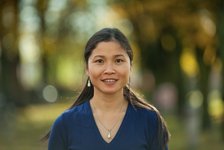
Project: ASEM: Regionalisation and Higher Education ‘Policy Travel’ between Europe and Asia
Summary: This study will add to the current theoretical debates on policy travel by identifying key actors in Europe and Asia, exploring ethnographically how ASEM meetings serve as forum for discussing and extending the Bologna Process trans-regionally, examining the relationship between the exchange of cultural ideas and economic interests, and the interrelationship between states’ engagement in ASEM education agendas and their negotiations in regional and national contexts.
Sintayehu Kassaye Alemu
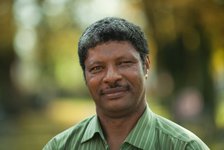
Project: Conceptualizing Internationalization of Higher Education and the Academic profession in Centre and periphery: A Comparative Analysis of Europe, Asia-Pacific and Africa
Summary: This project will try to analyze the dilemma that internationalization of universities and higher education institutions pose for academic life in small countries in Europe, Asia, Latin America and Africa. It also tries to investigate how the policy of internationalization of higher education helps the transformation of universities globally, regionally, and institutionally. Moreover, the project will analyze the regional similarities and differences or diversities in the process of higher education internationalization. It will try to unpack the practicalities and academic consequences and impacts of unequal higher education internationalization.
Jie Gao

Project: Conjunction of Chinese and Western educational traditions in the design and teaching of Sino-Danish Centre courses
Summary: With the approach of “study through” from the Anthropology of Policies, this research intends to establish a theoretical framework to address and understand how cultural differences are defined, responded to and employed by the individual and institutional participants of cross-border higher education in the development and delivery of the internationalised curricula and pedagogies.
Sina Westa

Project: Academic Freedom in Teaching in Higher Education in Europe and the Asia Pacific Rim
Summary: This research project will examine the role and status of academic freedom in higher education teaching in contemporary university settings in Europe and the Asia Pacific Rim. It will conduct a qualitative research design to examine the policy background, the main discourses and the academic teacher’s individual perception of academic freedom in their daily work life. In doing so, it will provide a context rich narrative to inform policy makers, academics and the wider society about the significance of academic freedom in university teaching in different cultures. It tries to close the gap between academic freedom and higher education teaching.
Miguel Lim

Project: The Global Ranking of Universities: The industry of rankings and the rise of audit culture in higher education
Summary: This research project aims to map the relationships within the field of the ranking industry and examine these relationships more deeply. It also aims to discuss the social dynamics of rankings and their effects in the field of higher education.
Janja Komljenovič

Project: Mapping the field of higher education industries and choosing case studies
Summary: The main aim of the research project is to look into ‘higher education resectoralisation’ generally and map higher education industries specifically by using multi-scalar analytic. The research project will find new cases and scales that are used to progress higher education projects and look into different regionalisms by developing regional mappings/typologies of higher education industries.
Corina Balaban

Project: The ITN and the IGERT: A comparative study of emerging visions for doctoral education in the global knowledge economy
Summary: The project adopts a comparative perspective by looking at two of the most influential models of doctoral education worldwide: the one in the US and the one in the EU. In addition, it also explores the case of Chinese doctoral education, and the extent to which this has been influenced by Western globalising forces. The study is designed in two inter-connected layers: one exploring the concepts and issues within the doctoral community, and one focusing on wider debates taking place outside this community.
Christopher Muellerleile
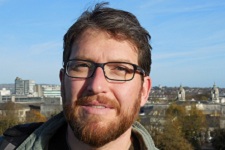
Project: New landscapes of publishing and knowledge dissemination
Summary: The objective of this project is to generate an account of new forms of publishing and knowledge dissemination in higher education (actors, activities, histories, interests, effects), and to examine the consequences for dissemination and impact.
Jana Bacevic

Project: Beyond the “Third Mission”: a grounded theory approach to universities’ involvement with the society
Summary: The objective of this project is to move beyond the uncritical import of the politicized concepts of the social role of higher education (and knowledge in general), variously described as the “social outcomes of learning” (e.g. OECD 2007), the contribution of higher education to a “democratic culture” (e.g. Council of Europe 2008), or, most generally, as the “third” mission of universities (in relation to the “first” and “second”, respectively teaching and research).
Vanja Ivošević
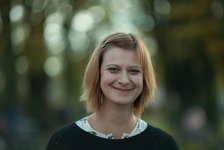
Project: Governance through Autonomy – A context-rich comparative study
Summary: The project examines the meanings and significance of ‘autonomy’ as a central concept in new forms of university governance. The aim is to grasp how it acts simultaneously in three ways: as an instrument of state regulation; as an incentive for making universities into coherent and strategic organisations; and as mechanism for interpellating academics as appropriately ‘self-managing’ subjects.
Katja Jonsas

Project: Management and gender
Summary: The aim is to find out how local managerial practices, local understandings of femininities and masculinities, and local definitions of academic identities facilitate the reconstruction of gender uniformity in academia? Furthermore, how the local practices intersect with the global developments in higher education? This research will contribute to discussions about gender diversity in academia, and the aim is to create a theoretical framework that can be applied when trying to figure out other diversity issues in academia.
Tatyana Bajenova
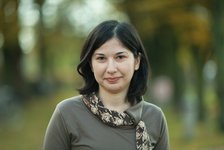
Project: Think Tanks and Academic Entrepreneurs in the Production of Knowledge
Summary: This project aims to show the complex and multi-scalar processes of think tank operation in Europe and to analyse the strategies which European think tanks employ to influence the policy-making process on the European level relying on the different resources they have at their disposal.
Catherine Butcher
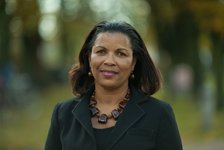
Project: Heterodox forms of university ownership, governance, financing and organisational structure
Summary: The research aims to explore how universities can be made more accessible through alternative forms of governance models such as Co-operatives. From personal experience it is anticipated that a co-operative university will seek to provide equal opportunity by placing people and their needs over profits; ensure democratic control; and build socially just local communities through university reform while at the same time provide excellent quality education at affordable prices.
Benedikte Custers

Project: Impact of governance changes on the educational categories and internal life of universities
Summary: The project examines the reconfiguration of educational categories resulting from the changes to governance in higher education. As the Bologna rationales of reform have been implemented beyond the European region, carrying on their shoulders the governance reforms, attention must be paid to their impacts on the reconfiguration of educational categories such as ‘professor’, ‘student’, ‘teaching’, ‘learning’, class and campus – the traditional time/space of education.
Rebecca Lund
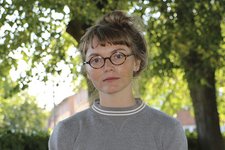
Project: Becoming a valuable academic in the global knowledge economy: Gender and class perspectives on the “ideal academic”
Summary: My aim is twofold. On the one hand to explore the possibilities of using and developing a reflexive Institutional Ethnography. Secondly to unpack the social relations of gender and quality in changing academia. More particularly I am interested in the social relations of class and gender and how these are shaped by notions of quality and epistemic status in academia, but more particularly in discourses of affect within a changing academic culture and academic knowledge production.